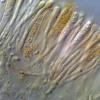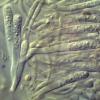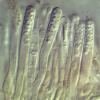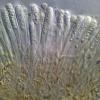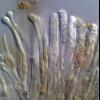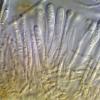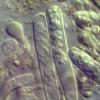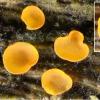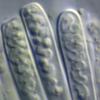
10-02-2026 17:42
 Bernard CLESSE
Bernard CLESSE
Bonjour à toutes et tous,Pourriez-vous me donner

10-02-2026 18:54
Erik Van DijkDoes anyone has an idea what fungus species this m

09-02-2026 20:10
 Lothar Krieglsteiner
Lothar Krieglsteiner
The first 6 tables show surely one species with 2

09-02-2026 14:46
Anna KlosGoedemiddag, Op donderdag 5 februari vonden we ti

02-02-2026 21:46
Margot en Geert VullingsOn a barkless poplar branch, we found hairy discs

07-02-2026 20:30
 Robin Isaksson
Robin Isaksson
Hi!Anyone that have this one and can sen it to me?

25-01-2026 23:23
Hello! I found this species that resembles Delitsc
 Bonjours tous
Bonjours tousvenant d'une Angleterre très chaude et très sèche dans la plupart des habitats dans ce domaine . . . . (tout le monde est heureux, je le suis moins!)
I am really determined to try to get to grips with Orbilia from now on and would welcome any help and suggestions during my struggle.
Here is an apricot-coloured collection, found on rather dry decorticated Quercus wood (at a late stage of decay, Nemania confluens close by).
Classic capitate paraphyses (many pigmented) with granular extracellular pigment also (first image).
The asci seem to contain two types of spores (next three images) - I wondered for a long time about Helicogonium but am unsure - are these spores just immature, or aborted, or?
Asci with 'normal' ascospores also present (see last three images). These spores vary from ovoid, through phaseoliform to reniform, so I am thinking Orbilia coccinella / eucalypti (spores small 2.5-3.5 x 1.7-2µm).
Am I well off the mark?
Cordialement
Chris
I think this is O. leucostigma/delicatula. Mature ascospores are allantoid and warted (you can see them quite clearly on some of your photos). What you consider normal ascospores on the last three micro photos looks like immature spores to me.
Best wishes
Gernot

this is typical O. leucostigma = O. delicatula (= xanthostigma s. auct. p.p.).
Normal spores are consistently reniform (cashew-shaped) and warted. The other seem abnormal spores though inside living asci.
The paraphyses contain in their lower part orange carotenoids, and I assume that the extracellulapr granules escaped during preparation by breaking the cells.
Is it from your home town?
Zotto

collection details are
on very rotten decorticated Quercus branch lying on the ground
Broadhead Clough, near Mytholmroyd, West Yorkshire
53°43'16.79"N 2° 0'13.17"W
207 metres O.D.
12th July 2013
regards
Chris

